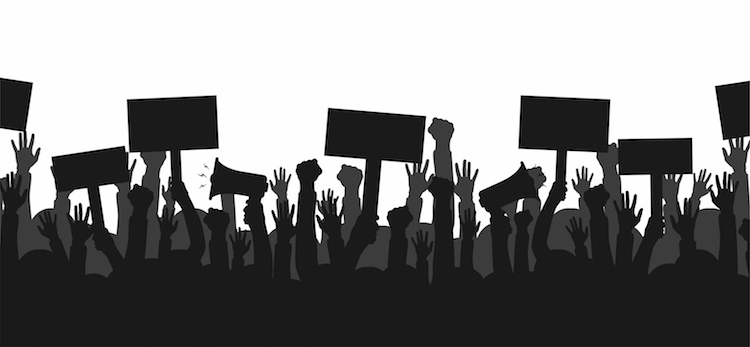Campus politics playing bigger role in prelaw students' law school considerations, survey says

“Students want to feel comfortable that they will not be harassed or thought of differently if they have views that can be polarizing,” Amit Schlesinger, Kaplan’s executive director of government and legal programs told the ABA Journal. Image from Shutterstock.
As conflicts related to the Hamas-Israeli war flare up on law school campuses, more than half of prelaw students—58%—want to attend a law school where their politics will align with those of others on campus, according to a survey by Kaplan conducted just before the war started and released Tuesday.
That’s a jump from the 46% who said political views were important in Kaplan’s 2020 survey.
In addition, the political climate influenced 53% of those surveyed to attend law school, up from 41% in 2020.
One student who wants to study with like-minded individuals cited as motivation the need “to express my opinions without fear of a backlash.”
Another wrote: “Even though it is important to dissent with respect and grow with people with opposing views, I consider that in this day and age, it’s very difficult to survive in hostile environments.”
College campuses have been a hotbed of political activity since the Oct. 7 start of the war. A junior at Cornell University was arrested on a federal criminal complaint charging him with posting threats to kill or injure Jewish students on campus, according to the Department of Justice.
At the Cooper Union Library in New York City, pro-Palestinian demonstrators banged on the glass walls where Jewish students, some wearing yarmulkes, took shelter inside, the Washington Post reports.
After someone attempted to burn an Israeli flag at a pro-Palestinian protest near Tulane University, at least two students were assaulted, according to the Washington Post.
Law firms weighed in earlier this month, sending a letter to the deans of the nation’s top law schools enocuraging condemnation of the antisemitic harassment flaring up on campuses.
Among the 36% of those who said that an ideological match was unimportant, one said: “I’d rather attend a law school with a range of political ideologies. I think it’s important to discuss differing beliefs and learn to respect everyone’s opinions.”
The remaining 6% of respondents were unsure whether holding the same political and social views of fellow students was important to them.
This preference for a like-minded campus culture does not surprise but does concern Amit Schlesinger, Kaplan’s executive director of government and legal programs.
“Students want to feel comfortable that they will not be harassed or thought of differently if they have views that can be polarizing,” he told the ABA Journal.
However, if law students surround themselves with people of similar attitudes, it could create an echo chamber at a time when they should be practicing debate, he says.
“Arguably, it does raise some concern,” he adds.
A Nov. 28 press release is here.



